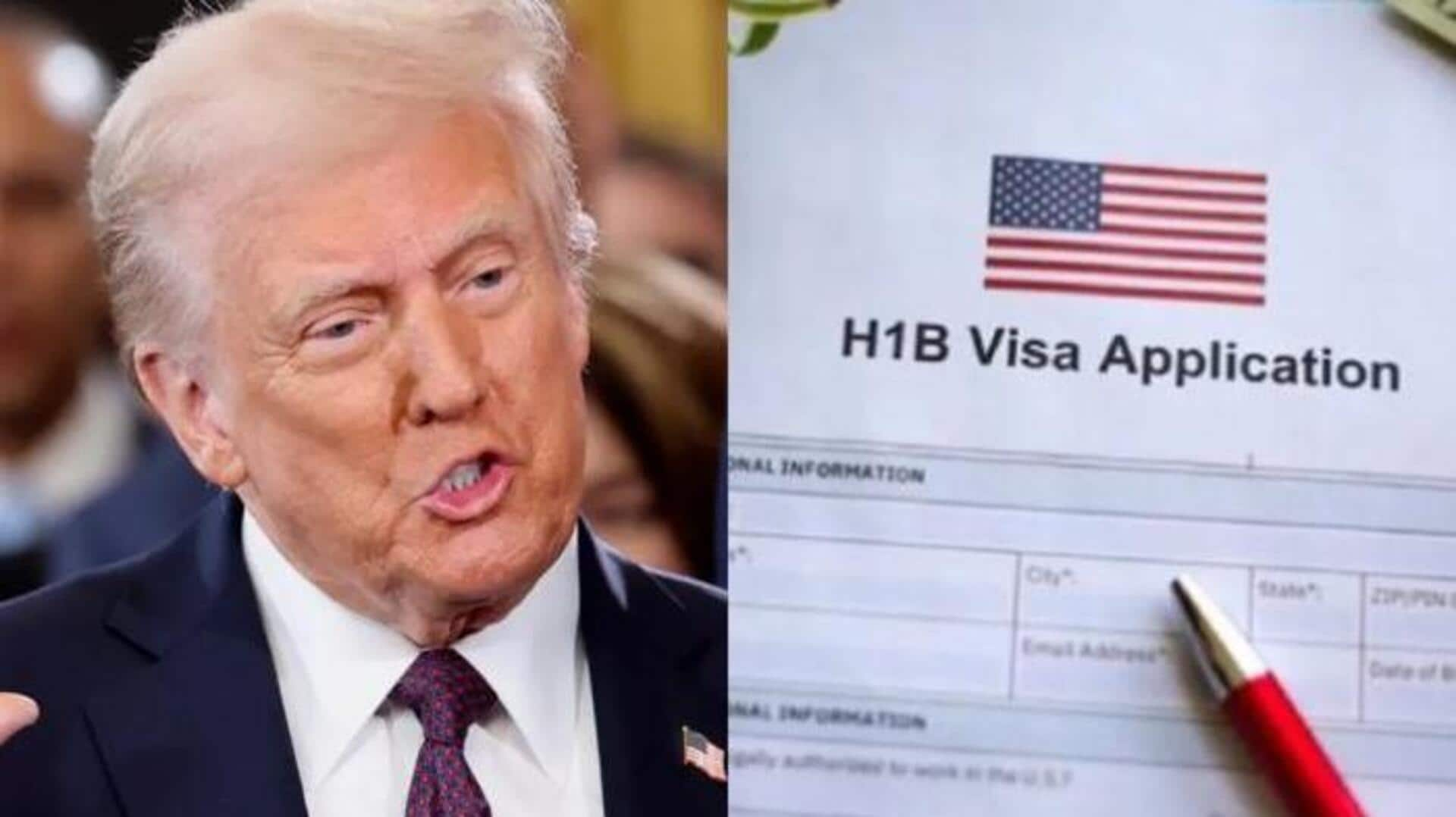**Trump’s New Visa Policy Could Impact India’s Real Estate Market**
*By Akash Pandey | Sep 20, 2025, 07:13 PM*
US President Donald Trump has introduced a new visa policy that is set to influence India’s real estate market significantly. Starting September 21, 2025, a hefty $100,000 annual fee will be imposed on most H-1B visa petitions. This development is expected to impact the residential property segment in Indian metro cities notably, while the commercial real estate sector might experience different effects, particularly through the operations of Global Capability Centres (GCCs).
### Major Impact on Indian Metro Cities
In the fiscal year 2024, over 71% of H-1B visa approvals went to Indian nationals. Experts believe that the new fee will discourage US onsite deployments and reduce overseas hiring. This shift could directly affect remittance-driven home buying and long-term housing decisions among Indian tech professionals.
Real estate specialists warn that cities such as Bengaluru, Hyderabad, Pune, and Gurugram are especially vulnerable to a slowdown due to this policy change.
### Housing Market Risks
Industry experts have highlighted three primary risks to India’s residential real estate market due to this policy:
– A decline in demand for premium housing.
– Delays in property purchase decisions as US relocations get postponed.
– Slower absorption of mid-to-high-end residential projects targeted at technology sector buyers.
A real estate consultant based in the Delhi NCR region noted that the sudden increase in visa costs is likely to dampen the sentiments of families planning overseas relocations, which could reduce property investments back home.
### The Role of Remittances in Housing Demand
Pareekh Jain, CEO of Pareekh Consulting, pointed out that remittances have been a major driver of housing demand in India. Although primary housing demand may rise due to some individuals returning from the US or moving to Indian metros, overall investment demand in the real estate sector is expected to weaken amid reduced remittances and increased job insecurity.
Similarly, Vishal Raheja, Founder and MD of InvestoXpert, emphasized that the increased H-1B visa fee is likely to affect housing demand negatively.
### Potential Boost for Commercial Real Estate
Despite challenges facing the residential sector, commercial real estate might see a potential upswing. American companies may accelerate the growth of their Global Capability Centres (GCCs) in India as they rethink staffing strategies in response to the new visa costs.
Indian metro cities could witness increased leasing of office spaces and expanded infrastructure development driven by this shift. According to data from CBRE, GCCs currently account for 35-40% of office space absorption in major cities like Bengaluru, Hyderabad, and Pune.
### Shifting Global Investment Patterns
As developers, buyers, and investors adapt to these new conditions, India’s real estate market is likely to experience a shift towards mid-segment housing and rental ecosystems.
Akash Puri from India Sotheby’s International Realty noted that higher H-1B visa costs might encourage top Indian talent to explore luxury real estate markets in other global cities. This dynamic could create fresh demand for real estate markets that offer greater stability and enhanced lifestyle options.
—
The new H-1B visa fee represents a significant shift with wide-ranging consequences for India’s housing and commercial property sectors. Stakeholders will need to closely monitor these trends and adjust their strategies accordingly.
https://www.newsbytesapp.com/news/business/trump-s-h-1b-fee-threatens-india-s-property-boom-in-tech-hubs/story
